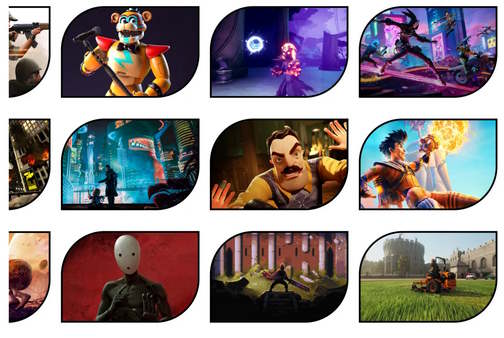The Art Of Storytelling In Video Games
Storytelling is a fundamental part of the human experience. We tell stories to entertain, educate, and connect with others. Video games are no exception. In fact, storytelling has become increasingly important in video games over the past few decades.
There are many reasons why storytelling is important in video games.
- First, it can help to immerse players in the game world. When players are invested in the story, they are more likely to be engaged in the gameplay.
- Second, storytelling can help to create emotional connections between players and characters. This can make the game more enjoyable and memorable.
- Third, storytelling can be used to explore complex themes and ideas. Video games can offer a unique perspective on these topics, as they can allow players to experience them firsthand.

There are many different elements that can contribute to good storytelling in video games. These include:
- Characters: The characters are the heart of any story. Players need to be able to connect with the characters in order to care about the story. Well-developed characters should be believable, relatable, and interesting. They should also have clear goals and motivations.
- Plot: The plot is the framework of the story. It provides a sense of direction and purpose. The plot should be engaging and well-paced, and it should keep players guessing what will happen next.
- Worldbuilding: The world is the setting for the story. It should be believable and immersive. The world should be rich in detail, and it should feel like a real place that players can explore.
- Narrative: The narrative is the way that the story is told. It can be delivered through a variety of methods, such as cutscenes, dialogue, and environmental storytelling. The narrative should be clear and concise, and it should keep players engaged.
Challenges of game animation
Storytelling in video games is not without its challenges. One of the biggest challenges is that players have the ability to interact with the world and the story. This can make it difficult to control the narrative and ensure that players experience the story in the way that the developers intended. Another challenge is the medium limitations of video games. For example, it can be difficult to convey complex emotions or ideas through gameplay.
Despite these challenges, storytelling in video games has come a long way in recent years. Developers are now using a variety of techniques to create immersive and engaging stories. For example, many games now use branching narratives, which allow players to make choices that affect the outcome of the story. Other games use environmental storytelling, which uses the environment to tell the story without the need for dialogue or cutscenes. Game animation services can also be used to enhance the storytelling experience in video games. For example, game animation services can be used to create realistic character animations that help players connect with the characters and their stories.
Storytelling is an essential part of the video game experience, and it is only going to become more important in the future. As developers continue to push the boundaries of what is possible, the possibilities for storytelling in video games will only increase. The future of storytelling in video games is very bright, and it is an exciting time to be a gamer.
Here are some examples of video games with excellent storytelling:
- The Last of Us: This post-apocalyptic survival game tells the story of Joel and Ellie, two survivors who must travel across the United States in search of a cure for a deadly infection. The game is praised for its well-developed characters, gripping plot, and immersive world.
- The Witcher 3: Wild Hunt: This open-world action RPG tells the story of Geralt of Rivia, a monster hunter who must travel across the Continent in search of his adopted daughter, Ciri. The game is praised for its sprawling world, complex characters, and morally ambiguous choices.
- Red Dead Redemption 2: This Western action-adventure game tells the story of Arthur Morgan, a member of the Van der Linde gang. The game is praised for its immersive world, realistic characters, and engrossing story.
- BioShock: This first-person shooter game tells the story of Jack, a survivor who awakens in the underwater city of Rapture. The game is praised for its unique setting, thought-provoking story, and memorable characters.
- Mass Effect: This science fiction action RPG tells the story of Commander Shepard, a human who must unite the galaxy against a common enemy. The game is praised for its epic scope, memorable characters, and complex moral choices.
- Gone Home: This first-person exploration game tells the story of Katie Greenbriar, who returns home to her family’s house after a year abroad. The game is praised for its atmospheric storytelling, environmental storytelling, and its exploration of themes of family, loss, and nostalgia.
- What Remains of Edith Finch: This walking simulator tells the story of Edith Finch, who returns to her family’s home after her father’s death. The game is praised for its unique storytelling style, its exploration of themes of family, grief, and loss, and its beautiful visuals.
These are just a few examples of video games with excellent storytelling. There are many other great games out there that tell compelling stories. As the medium continues to evolve, we can expect to see even more innovative and immersive storytelling in video games in the future.
The future of storytelling in video games
The future of storytelling in video games is very bright. As technology advances, developers will be able to create more immersive and interactive worlds, and they will be able to tell more complex and nuanced stories. The rise of cloud gaming will also make it easier for developers to create and distribute video games with rich storytelling experiences. This will open up the world of video games to a wider audience, and it will allow more people to experience the power of storytelling in this medium.
Here are some of the trends that I believe will shape the future of storytelling in video games:
- More branching narratives: Branching narratives allow players to make choices that affect the outcome of the story. This gives players more agency and allows them to feel like they are truly shaping the story.
- More environmental storytelling: Environmental storytelling uses the environment to tell the story without the need for dialogue or cutscenes. This can be a very effective way to tell stories, as it allows players to discover the story at their own pace and in their own way.
- More focus on character development: Well-developed characters are essential for any good story. In video games, character development can be achieved through dialogue, gameplay, and environmental storytelling.
- More exploration of complex themes: Video games are a great medium for exploring complex themes, such as morality, identity, and loss. As developers become more sophisticated in their storytelling, we can expect to see more games that tackle these difficult topics.







